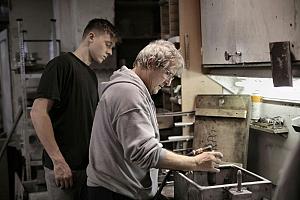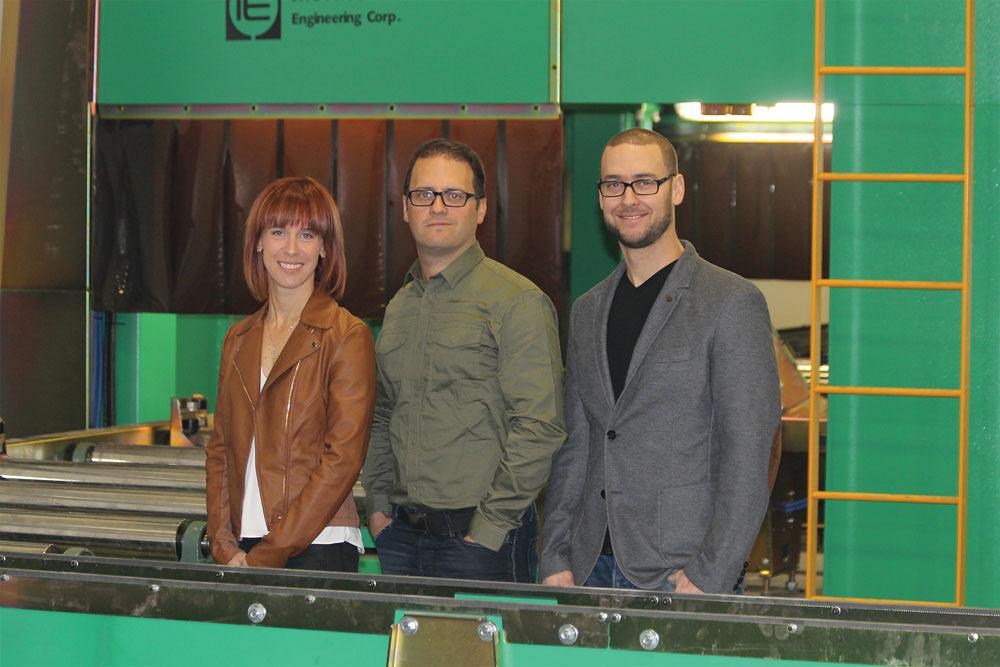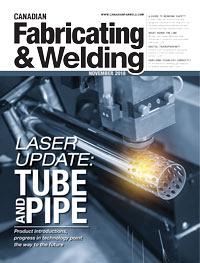Editor
- FMA
- The Fabricator
- FABTECH
- Canadian Metalworking
Right down the line with Métautek
Mirabel, Que.-based shop adds efficiencies in production with automated beam line
- By Rob Colman
- November 16, 2018
- Article
- Automation and Software
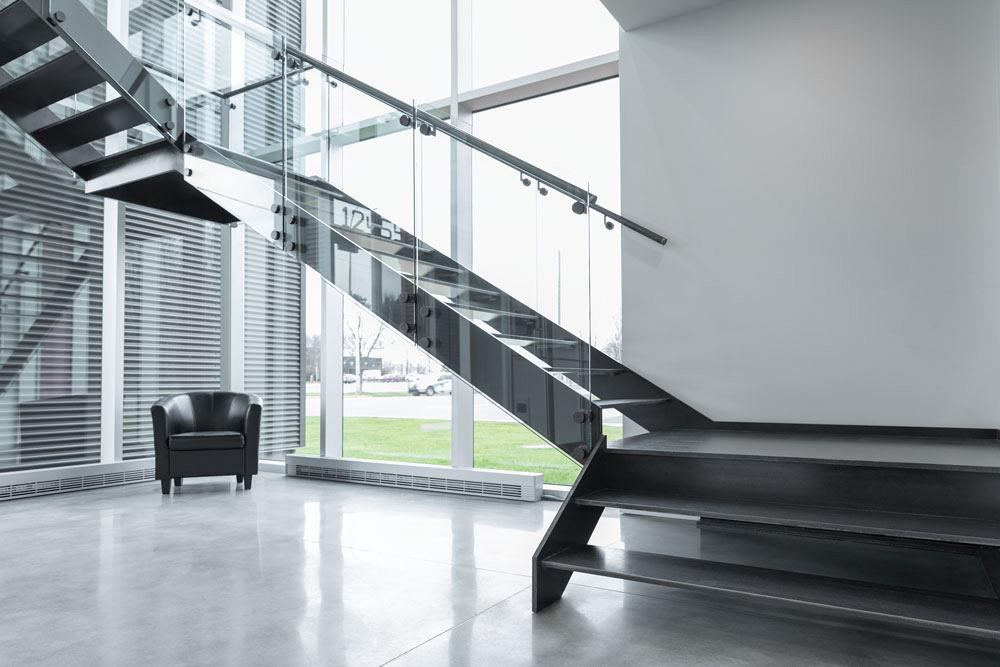
Métautek specializes in the fabrication of metal staircases and peripheral fabrication requirements for general contractors working in commercial, industrial, and institutional construction. Images courtesy of Métautek.
Automation is an important word for every fabricating shop in Canada. Shop owners understand only too well that time savings gained from automation at any stage of their production can help improve their output and on-time delivery rate. The question is always, Where should our automation journey begin? For Mirabel, Que.-based Métautek, this was a relatively easy decision. But that first investment will likely be only the first of a number.
Family Strength
Métautek’s story began in 1986, when Robert Alarie launched a mobile welding workshop. In 1999 he built his first shop, which was a 2,000-sq.-ft. facility in St.-Jérôme. His two sons, Pascal and Dominique, were his first official employees, though his wife was always involved with the bookkeeping. In 2005, with his wife and three children now part of the business, he created Les Entreprises Métautek Inc.
By 2006 the company had outgrown its old facility. The family designed and built a new, 10,000-sq.-ft. facility and grew its product offering to fill the expanded space. By then it had a staff of about six in the shop.
In 2014 siblings Stéphanie, Pascal, and Dominique took the reins of the company, and Robert retired. In 2017 the company once again grew, opening its current 27,000-sq.-ft. facility in the Mirabel area, once more increasing production capacity. The staff now numbers about 55 between the shop and the front office.
On-time Expertise
Métautek has grown its facilities to match its reach in its chosen specialty market; the shop specializes in the fabrication of metal staircases and peripheral fabrication requirements for general contractors working in commercial, industrial, and institutional construction.
“After a structure is erected, everything made out of steel in the building is where we come in,” said Dominique Alarie. “This means primarily staircases, but also ladders, protective columns, lintels for exterior brick, and anything else that’s made of steel in a facility. We do some structural work, but that accounts for no more than 20 per cent of our business.”
Growth is always admirable, but that’s sustainable only if a shop can maintain quality.
“The clients we get stay with us,” said Dominique. “Companies like to work with us because we are consistent. Our stairs are always the same quality, and we always deliver when we say we will.”
On-time delivery can be a challenge when a shop depends on outsourced parts. That’s a challenge that Métautek started to have with some of its precut parts.
“We depended on suppliers to provide us with precut parts for our assemblies, and delivery times could vary from three days to 12 days,” said Pascal Alarie. “We couldn’t rely on them.”
To solve that problem, the company invested in a SteelPro 900 beam and plate processing system from Inovatech Engineering Corp. The machine has four-side robotic cutting on beam parts and a separate plate-cutting station. It uses a 6-axis FANUC robot that is guided by a Güdel linear gear track system. It can cut, cope, and bevel with 0.02-mm repeatability. Beams up to 65 feet by 44 inch can be processed on the machine, including square or rectangular tubing, angle, channel, and bulb flats.
The most consistent job the beam line is called upon to do is cutting staircase stringers to the necessary size. The software that comes with the machine includes real-time control, profile nesting, jogging, and detailed production tracking, so it can be essentially managed to run product hours at a time.
“Right now the line runs between 16 and 20 hours per day,” said Pascal. “We thought we would run it for about 10 hours a day on our own work and subcontract the rest of the time to other companies. But we grew so much so quickly because of what it allowed us to do, we don’t want any extra work.”
It also assists in assembly processes.
“Everything is marked on the beam line how it is supposed to be assembled to make this process simple, said Stéphanie Alarie. “The worker doesn’t have to puzzle over the parts because everything is clearly marked. This makes assembly that much quicker.”
Métautek chose to go with Inovatech’s product partly because of that company’s culture.
“My brother said, ‘these people are like us – they are a comparatively small company, and if we have a concern they will respond.’ And it’s true, they are very responsive to our needs,” said Stephanie. “It’s been a very good relationship.”
These processes make a big difference to the company’s bottom line.
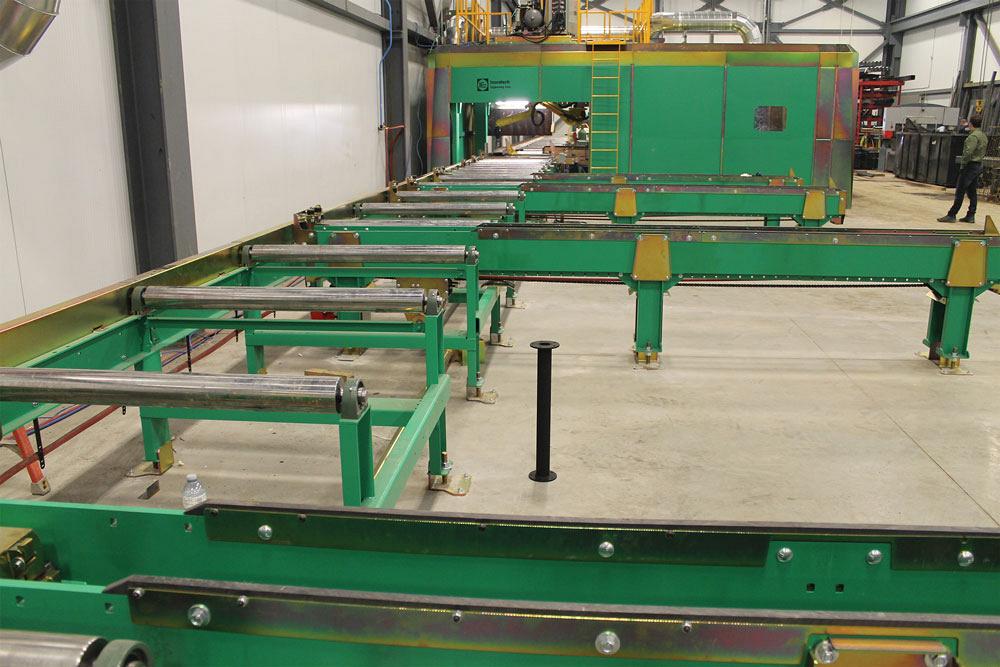
On-time delivery can be a challenge when a shop depends on outsourced parts. That’s a challenge that Métautek started to have with some of its precut parts. To solve that problem, the company invested in a SteelPro 900 beam and plate processing system from Inovatech Engineering Corp. The machine has four-side robotic cutting on beam parts and a separate plate-cutting station. It uses a 6-axis FANUC robot that is guided by a Güdel linear gear track system. It can cut, cope, and bevel with 0.02-mm repeatability.
“Everybody buys material the same way, everyone has building overhead costs, so where can you save money? Man hours,” said Dominique. “The beam line easily does the work of four people. We thought it would account for about 2.5 people, but it easily does the work of four. It pays for itself, and it doesn’t make mistakes.”
The beam line hooks into the company’s ERP system so that management can see how long the beam line ran a job, and how long assembly took afterwards.
“We can see exactly where we’re gaining efficiencies,” said Dominique.
Next Steps
Métautek isn’t looking at automation just to save money. The reality is, it is constantly a challenge to find new staff.
“Even if we wanted to double our production tomorrow, we don’t have the employees to do so,” said Pascal. “The positive thing is that the employees we do have tend to stay with the company.”
Métautek is considering options for more automation, but the process of investing in that equipment will take time as the company stabilizes operations after last year’s big move.
Saying that, the shop continues to grow, bit by bit. The Alaries recently added a tube bender to the shop floor.
The biggest need people-wise on the shop floor is welders. The company is currently cross-training two non-welder employees to see if they might grow into a welding role. The Alaries also visit local schools to make students aware of the opportunities at the company.
The most important consideration for the family right now is that they continue to grow the company progressively. “We want to make sure we don’t grow too fast,” Stephanie said. “It’s important that we continue to serve our customers with the same quality and service levels.”
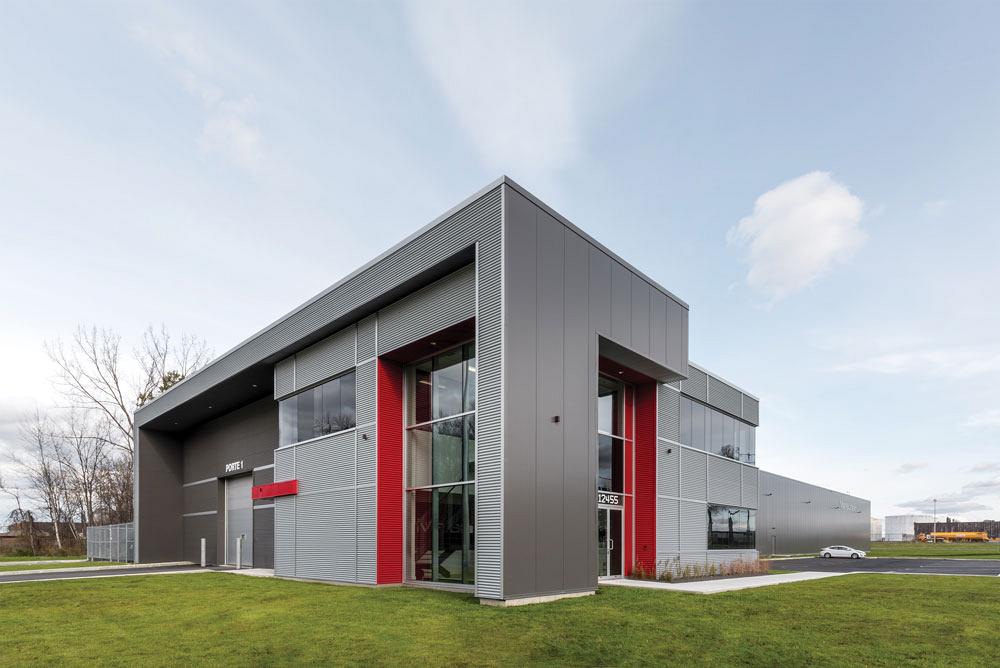
In 2017 the company opened its current 27,000-sq.-ft. facility in the Mirabel area. The staff now numbers about 55 between the shop and the front office.
Editor Robert Colman can be reached at rcolman@canadianfabweld.com.
Les Entreprises Métautek Inc., www.metautek.com
About the Author

Rob Colman
1154 Warden Avenue
Toronto, M1R 0A1 Canada
905-235-0471
Robert Colman has worked as a writer and editor for more than 25 years, covering the needs of a variety of trades. He has been dedicated to the metalworking industry for the past 13 years, serving as editor for Metalworking Production & Purchasing (MP&P) and, since January 2016, the editor of Canadian Fabricating & Welding. He graduated with a B.A. degree from McGill University and a Master’s degree from UBC.
subscribe now


Keep up to date with the latest news, events, and technology for all things metal from our pair of monthly magazines written specifically for Canadian manufacturers!
Start Your Free Subscription- Trending Articles
Orbital tube welding webinar to be held April 23
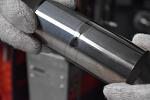
Portable system becomes hot tech in heat treatment
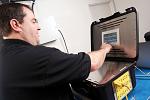
Cidan Machinery Metal Expo 2024 to be held in Georgia May 1-2
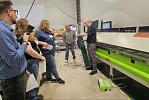
CWB Group launches full-cycle assessment and training program
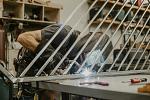
Achieving success with mechanized plasma cutting
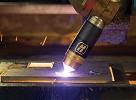
- Industry Events
MME Winnipeg
- April 30, 2024
- Winnipeg, ON Canada
CTMA Economic Uncertainty: Helping You Navigate Windsor Seminar
- April 30, 2024
- Windsor, ON Canada
CTMA Economic Uncertainty: Helping You Navigate Kitchener Seminar
- May 2, 2024
- Kitchener, ON Canada
Automate 2024
- May 6 - 9, 2024
- Chicago, IL
ANCA Open House
- May 7 - 8, 2024
- Wixom, MI





